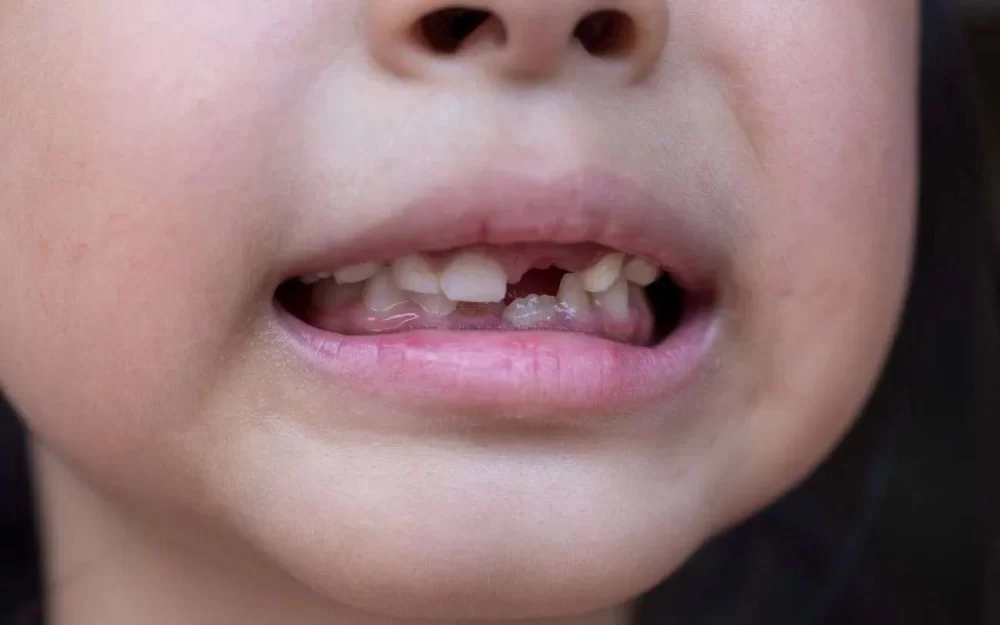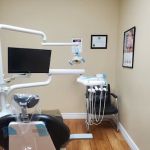
What to Do If Your Tooth Is Knocked Out: Emergency Care and Solutions
Imagine this: you’re out playing your favorite sport, and suddenly, you get knocked in the face. You feel a sharp pain, and when you touch your mouth, you realize something’s horribly wrong — your tooth is missing. It’s a situation no one wants to be in, but it can happen to the best of us. What should you do if your tooth is knocked out? Having faced this myself in a basketball game, I can tell you that the first few minutes are crucial to saving the tooth and ensuring the best outcome for your dental health.
1. Stay Calm and Assess the Situation
When your tooth gets knocked out, it’s easy to panic, but staying calm is the first step in getting the proper help. I vividly remember when my tooth was knocked out; I could feel the rush of panic, but I quickly reminded myself to breathe and stay focused. Take a few seconds to assess if you’re injured anywhere else — your gums, jaw, or other teeth could also be hurt. If there’s heavy bleeding or signs of a more serious injury, seeking immediate medical attention should be your priority. However, if it’s just your tooth that’s out, you can follow the next steps to try and save it.
2. Find the Tooth
In my case, I quickly found the tooth on the ground. If you’re in a similar situation, look for the knocked-out tooth as soon as possible. Handling the tooth carefully is key. Hold it by the crown (the top part that’s usually visible when in the mouth) and avoid touching the root. I can’t stress enough how important it is to avoid touching the root because doing so can damage the delicate cells necessary for reattachment. Once you find the tooth, don’t waste any time. Every minute counts when it comes to replanting the tooth.
3. Clean the Tooth (If Necessary)
If the tooth is dirty, you should rinse it gently under water to remove any dirt or debris. However, avoid scrubbing it or using soap, as this could damage the tooth. I remember being careful not to use any harsh chemicals or anything that could further harm it. Never try to clean the tooth with alcohol or disinfectants, as this can compromise the cells that help it reattach. If the tooth is extremely dirty and you’re unsure, it’s better to leave it as is and consult a dentist immediately.
4. Keep the Tooth Moist
The next step is critical: keeping the tooth moist. If you can, try to place the tooth back into its socket in your mouth. Gently push the tooth back into the socket without forcing it, and bite down softly to keep it in place. It’s essential to do this as soon as possible. In my case, I was able to place the tooth back in, which significantly improved the chances of reattachment. If you can’t reinsert the tooth into the socket, place it in a glass of milk. Milk helps keep the tooth’s cells alive. If milk isn’t available, I’ve heard of people using saline solution or even saliva, but milk remains the best option for preserving the tooth.
5. Get to a Dentist Immediately
Time is of the essence when it comes to saving a knocked-out tooth. I learned this firsthand when I rushed to my dentist’s office right away. The sooner you get to a dentist, the better your chances of having the tooth successfully reimplanted. Ideally, you should see a dentist within 30 minutes to an hour. In some cases, the dentist might be able to replant the tooth successfully, and with the right care, it can heal and function just like before. If it’s not possible to save the tooth, your dentist will help you explore alternatives like dental implants or bridges.
6. Avoid Using the Tooth Until It’s Healed
Once your tooth is reimplanted, the healing process begins. During this time, it’s crucial to avoid chewing on the affected side. I remember my dentist giving me specific instructions on how to care for the tooth during recovery. You may be advised to eat soft foods and avoid any activities that might cause further impact to the area, like intense physical exercise. It’s also essential to follow your dentist’s advice regarding follow-up visits to monitor the tooth’s healing process.
7. Follow Up with Your Dentist
Even if the reimplantation seems successful, don’t forget to follow up with your dentist. I had several follow-up appointments to ensure the tooth was healing properly. Your dentist will monitor for any signs of infection or complications and will guide you on how to care for the tooth in the long term. Remember, some teeth may require root canal treatment after replantation to ensure they remain healthy.
8. Prevention is Key
As someone who has been through this painful experience, I highly recommend taking preventive measures to avoid tooth injuries in the future. If you’re engaging in sports or any high-risk activity, always wear a mouthguard. A mouthguard can protect your teeth from direct impact and significantly reduce the risk of losing a tooth. I’ve been using one during every game since my incident, and it’s become an essential part of my routine. It’s a small investment in your oral health that can save you from much larger dental issues down the road.
Experiencing a knocked-out tooth can be scary, but with the right knowledge and quick action, you can increase the chances of saving it. By staying calm, following the right steps, and seeking dental care immediately, you can get the best outcome. If you ever find yourself in this unfortunate situation, don’t hesitate to reach out to a dental professional. For more information and the best dental care recommendations, check out Dentistry Toothtruth, where we offer expert advice and connect you with top dental services.







 Scott Soderquist, DDS, MS0.0 (0 review)
Scott Soderquist, DDS, MS0.0 (0 review) Willamette Dental Group - Tacoma3.0 (203 review)
Willamette Dental Group - Tacoma3.0 (203 review) Kevin Walker DDS and Mae Lee Springer DDS5.0 (125 review)
Kevin Walker DDS and Mae Lee Springer DDS5.0 (125 review) McLemore Dentistry4.0 (330 review)
McLemore Dentistry4.0 (330 review) Reynolds Family Dentistry of Richmond4.0 (19 review)
Reynolds Family Dentistry of Richmond4.0 (19 review) Densley Dental4.0 (260 review)
Densley Dental4.0 (260 review) The Importance of Oral Health Education During Pregnancy for a Healthy Pregnancy
The Importance of Oral Health Education During Pregnancy for a Healthy Pregnancy Best Tips for Brushing Your Teeth Properly for Healthy Gums: Essential Techniques for Oral Health
Best Tips for Brushing Your Teeth Properly for Healthy Gums: Essential Techniques for Oral Health Why Skipping Dental Checkups Can Lead to Bigger Oral Health Problems
Why Skipping Dental Checkups Can Lead to Bigger Oral Health Problems Advantages of Porcelain Dental Restorations
Advantages of Porcelain Dental Restorations How Can Diabetes Cause Tooth and Gum Problems? Preventing and Managing Oral Health Issues
How Can Diabetes Cause Tooth and Gum Problems? Preventing and Managing Oral Health Issues Healthy Habits for Promoting Good Oral Health and Hygiene: Tips for a Healthy Smile
Healthy Habits for Promoting Good Oral Health and Hygiene: Tips for a Healthy Smile